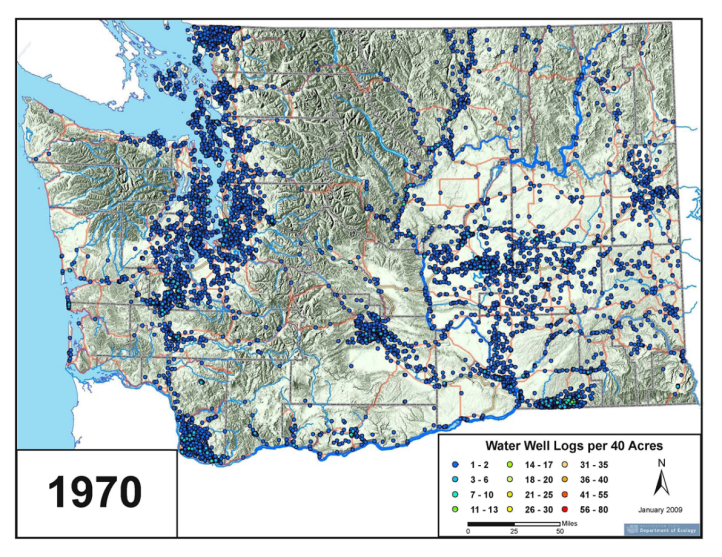Protect Aquifers
Over 60% of Washington’s drinking water comes from groundwater; aquifers are what store that water. CELP is the leading conservation organization ensuring the Dept. of Ecology uses its full authority under state law to protect the sustainable management of our aquifers.
Water is Life
Access to sufficient, safe, and affordable water for personal and domestic use is a human right. As our state’s population swells, our government has the responsibility to ensure the protection of that right.
Anyone who calls Washington home knows our state is growing. In fact, the latest census data shows that Washington’s population increased by over 14% between 2000 and 2020, the seventh fastest growing state overall. And all that economic growth cannot occur without water. All uses of land—whether it be agricultural, residential commercial or industrial—require access to reliable water supplies. While the relationship between land use and water is fundamental, until recently our land use laws almost entirely failed to recognize that future growth depends upon sustainable water resources. CELP is working statewide to better integrate wise water management with the land use permitting process.
Furthermore, economic growth cannot occur without water. All uses of land (whether it be agricultural, residential commercial or industrial) require access to reliable water supplies. While the relationship between land use and water is fundamental, our land use laws (until recently) almost entirely failed to recognize that future growth depends upon sustainable water resources. To protect our aquifers, CELP is working statewide to better integrate wise water management with the land use permitting process.
A Dangerous Loophole
In 1945, the Legislature established the Groundwater Code, Chapter 90.44 RCW. In the code, at RCW 90.44.050, certain small withdrawals of groundwater were identified as ‘exempt’ from the state’s water right permitting process. This law is commonly referred to as the “groundwater permit exemption.” This exemption allows for four uses of groundwater without a water right permit: 1) domestic uses of up to 5,000 gal/day, 2) industrial uses of up to 5,000 gal/day, 3) irrigation of a lawn or garden, a half-acre or less in size, and 4) water for livestock.
As a result of this loophole, over 1 million permit-exempt wells now exist throughout Washington state. While each individual exemption might be used for a “small” or “trivial” amount of water, the scale at which these exemptions have been utilized has added up to a significant drain on our state’s water supply and is leading to issues. Because of hydraulic continuity—the underground link between aquifers and streams—pumping groundwater often siphons water away from nearby streams and rivers. As a result other wells are running dry and streamflows in our waterways are rapidly diminishing leading to the curtailment of water rights and threatening the health of aquatic ecosystems.



CELP is focused on closing, or at least minimizing, this loophole, and integrating sound water management into land use planning. We cannot make land use decisions without ensuring that new water uses will not harm existing private uses nor the public’s interest in healthy rivers and sustainable aquifers.
